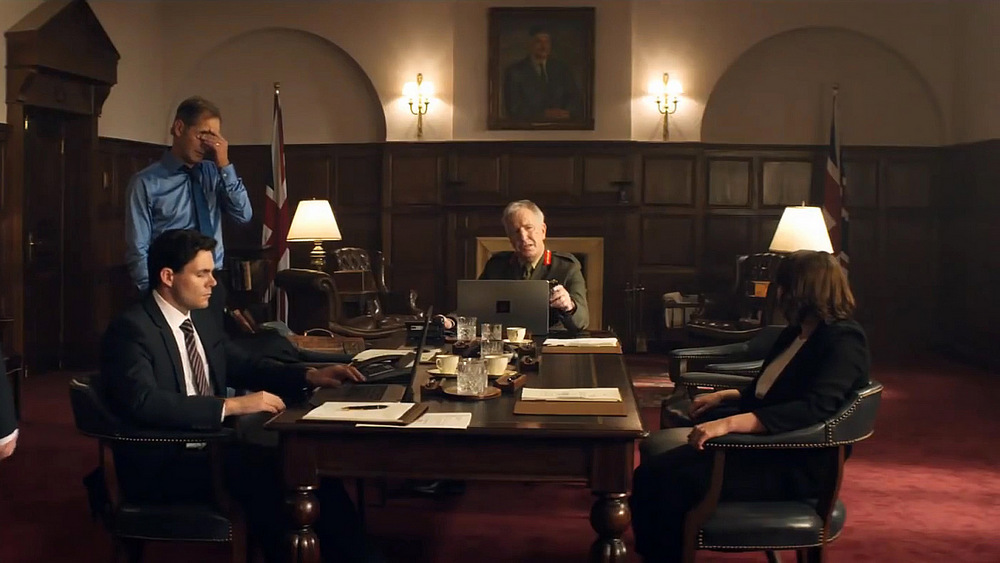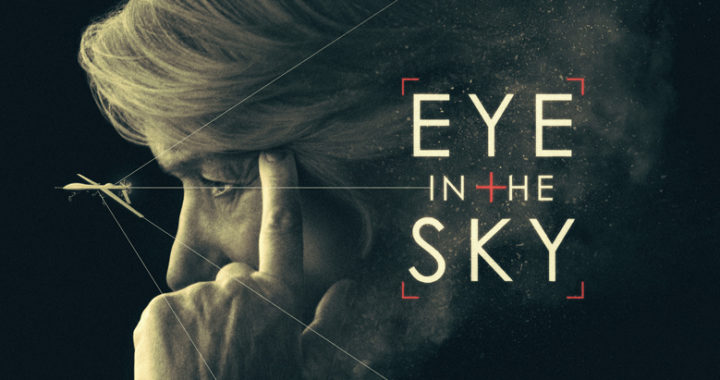What is the cost of fighting terrorism? That is the broader question looming over Eye in the Sky. Directed by Gavid Hood (Tsotsi, Ender’s Game), the film narrows this problem down to the scale of one single drone strike in Kenya. After trailing these terrorists on the East Africa Most Wanted list for years, Colonel Katherine Powell (Helen Mirren) leads a mission to selectively bomb the house they are meeting in. Unfortunately, there are strict rules of engagement in this situation and before any strike can be launched she needs the permission of General Frank Benson (Alan Rickman, Harry Potter) and several politicians who have conflicting viewpoints.
Drone strikes and questions of their legality and morality have been highlighted in the news recently and Eye in the Sky displays the complexities and minutiae that are inherent in military missions. A major theme of the film is responsibility and blame. Who really makes a decision that, while killing terrorists, could risk harming innocents? Is it the pilot who pulls the trigger? The Colonel that gives the order to fire? The general or several politicians that defined their rules of engagement? The film implies that responsibility is held at each point in the chain of command and the aftermath of these decisions is felt by everyone. One of the most interesting points brought up in the ongoing discussion is about the larger implications of casualties. If they kill one child to save 80 people from a potential suicide bomber, will the British government become reviled? Is vilifying the terrorists in the media worth allowing a bombing to occur? Again, the movie smartly avoids providing direct answers to these questions and is impressively balanced in portraying each opinion.

Furthermore, the film explores how political involvement in the military matters can undermine their efficacy. Beyond morality, each politician in the film considers the political impact of the bombing. How will this affect their career? Their party? In one case a ranking politician asks to a dissenting voice, “Will you be the one who has to go on morning news shows to explain this?”. The film shows how these considerations cripple the politicians with indecision as they continually “refer up” to avoid culpability, despite the time-sensitive nature of the operation. When they begin to rely on predictive damage models to make their decisions, the question of reliability of data is also raised. How much of these models are based on fact and can they change if a ranking military official wants them to? The films shows the desperation that can be created by indecision at a critical moment.
Eye in the Sky is primarily a film about these ideas but it does however have brief action scenes in Africa. Barkhad Abdi of Captain Phillips (He is not the Captain now) plays their man on the ground. Hood deftly uses these scenes to contrast the political risks with the dangers agents in that position take trying to fight terrorism everyday. For the the most part they are well staged. The only flaw is many of the effects are obviously computer generated and can break the otherwise successful immersion.
When decisions are finally made, the film avoids simple resolution. The actions taken – and the actions not taken – play out and the consequences are felt by all. Did someone “win” the arguments? Was the mission successful? What does “success” even mean in the this scenario? As the credits roll, these are the questions that linger over the characters and the audience. Eye in the Sky, succeeds by raising these questions and enforcing the uncertainty of any possible answer.

4/5 stars.
